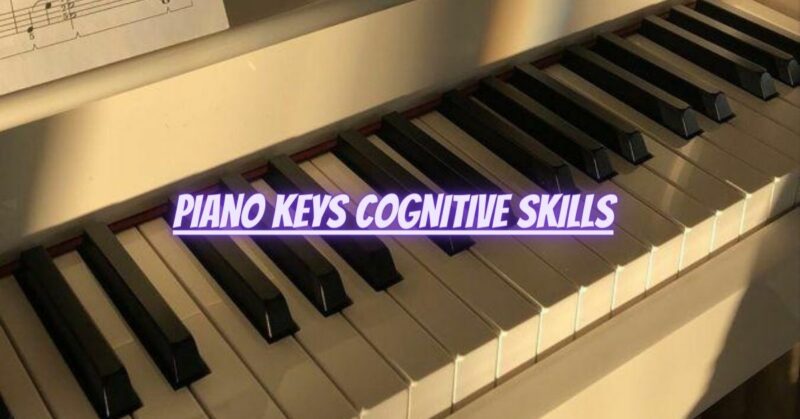The piano, with its elegant array of keys, is not only a captivating musical instrument but also a powerful tool for enhancing cognitive skills. The intricate process of playing piano keys engages various regions of the brain, fostering mental agility, memory, and problem-solving abilities. In this article, we will explore the profound impact of piano keys on cognitive skills and why incorporating piano playing into one’s life can lead to significant improvements in brain function.
1. Memory Enhancement:
Playing the piano requires musicians to memorize and recall musical pieces from memory. This process of committing complex compositions to memory enhances both short-term and long-term memory capabilities. As individuals practice and replay pieces repeatedly, neural connections strengthen, resulting in improved memory retention.
2. Fine Motor Skills Development:
The delicate finger movements required to strike piano keys enhance fine motor skills. The precise coordination of fingers and hands strengthens neural connections between the brain and muscles, leading to increased dexterity and precision. These fine motor skills can extend beyond music and benefit other activities, such as writing or artistic endeavors.
3. Cognitive Flexibility:
Piano playing involves reading and interpreting sheet music, which demands cognitive flexibility. Musicians must switch between multiple tasks, such as reading notes, coordinating hands, and interpreting musical symbols, all in real-time. This cognitive flexibility translates to an enhanced ability to adapt to new situations and switch between different mental tasks effectively.
4. Problem-Solving Skills:
Learning and mastering a new piece of music involves breaking it down into smaller sections, identifying patterns, and figuring out finger placements. This process enhances problem-solving skills, as musicians need to analyze the composition and find solutions to technical challenges.
5. Attention and Focus:
Playing the piano demands focused attention and concentration. Musicians must pay close attention to details, such as tempo, dynamics, and expression, while coordinating both hands. Regular practice improves attention span and the ability to sustain focus on specific tasks.
6. Mathematical Thinking:
The patterns and structure inherent in music make it inherently mathematical. Understanding rhythm, time signatures, and musical intervals requires mathematical thinking. Engaging in piano playing can strengthen mathematical skills and make abstract concepts more tangible.
7. Emotional Intelligence:
Music, played through piano keys, can evoke various emotions. As musicians interpret and convey emotions through their playing, they develop emotional intelligence. Understanding and expressing emotions through music enhances empathy and social interactions.
Conclusion:
Piano keys hold a profound impact on cognitive skills, benefiting musicians of all ages. Beyond the enchanting melodies they create, piano playing enhances memory, fine motor skills, cognitive flexibility, problem-solving abilities, attention, and emotional intelligence. By incorporating piano playing into one’s life, individuals can unlock the full potential of their cognitive abilities and enjoy the countless mental benefits that music offers. So, whether you are an aspiring pianist or someone who simply enjoys tinkering with the keys, embrace the captivating world of piano playing and nurture your cognitive skills while reveling in the beauty of music.


